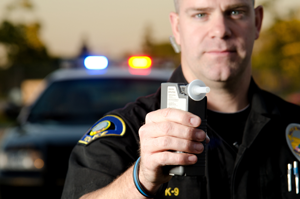DWI/DUI
It is no small issue to be arrested for Driving Under the Influence (DUI) or Driving with an Unlawful Alcohol Concentration (DUAC). Simply being charged with these offenses could affect your capability to meet your daily responsibilities and obligations. You could lose your driver’s license, be compelled to pay substantial fines, or even face jail time. You need an effective DUI/DWI lawyer.
Unfortunately, we can't be there with you when the blue lights come on, but we can help guide you through the rest of the process. Knowledge and experience are important components in mounting an effective defense to these charges. As a former DUI prosecutor for more than three years, Zach Ellis is well-equipped to explore every available legal option and ensure that your rights are protected.
See our DUI FAQ below for answers to common DUI/DWI lawyer-related questions.
Call us today for a free confidential consultation.
FAQ
Why should you contest a DUI charge?
A DUI conviction will linger on your criminal history for the rest of your life and on your DMV records for 10 years. Unlike virtually every other misdemeanor offense, including criminal domestic violence, a DUI conviction cannot ever be expunged.
If you are a college student on scholarship, or if you have a commercial driver’s license (CDL), you could lose those benefits if you are convicted.
Certain employers – including many schools, hospitals and healthcare offices – will consider firing an employee who is convicted of DUI.
If you are a traveling salesperson or have to travel frequently for your job, you may lose your job since a conviction will cause you to lose your full driving privileges for 6 months.
If you are a resident of a state other than South Carolina, a conviction could still impact your driving record in your home state.
What penalties do you face for a DUI?
The penalties vary relying on your blood alcohol content and how many prior convictions for DUI or DUAC you have on your record. A conviction for DUI 1st Offense with a blood alcohol content of 0.10% or lesser could result in a fine of $400 or 30 days in jail. A 1st Offense conviction with a blood alcohol content of 0.16% or greater could result in a fine of $1,000 or imprisonment for no less than 30 days and no more than 90 days. A DUI 4th offense or greater with a blood alcohol concentration of 0.16% or higher results in mandatory prison time of at least 3 years and a possible sentence of 7 years in prison. Depending on the offense and blood alcohol level, you also could be compelled to be on probation, perform community service, submit to random drug and alcohol testing, and/or other requirements.
Felony DUI Resulting In Great Bodily Injury carries jail time of at least 30 days and up to 15 years AND a fine of $5,100 to $10,100. Felony DUI resulting in death carries at least 1 year in prison and may result in up to 25 years in prison AND a fine of $10,100 to $25,100.
A DUI 1st Offense conviction will suspend your license for six months (this is in addition to any suspension you already have endured after the date of your arrest).
A DUI conviction requires you to purchase expensive SR-22 insurance.
A DUI conviction will force you to pay for and take part in an alcohol and drug safety program (ADSAP)
A DUI 1st Offense with a blood alcohol content of 0.16% or above, or a DUI 2nd, 3rd or 4th Offense at any level of blood alcohol content will require you to install an ignition interlock device on your vehicle.
Should I provide a breath, blood or urine sample in a DUI case?
You are not required to submit to a breath, blood or urine sample in a DUI case. It is completely your choice to take the test or refuse it. You also may take a breath test but refuse a urine test for drugs if you so choose.
If you provide a breath, blood or urine sample, and the test indicates your blood alcohol concentration is 0.15% or higher, your driver’s license will be suspended for 30 days.
If you refuse to take a breath, blood and/or urine test, your license will be suspended in SC for six months.
However, if your license is suspended for either of the above-listed reasons, you may request an administrative hearing to challenge your license suspension within 30 days of your arrest, and this will allow you to obtain a Temporary Alcohol Driver’s License that will allow you to drive anywhere in SC at any time of day or night.
What should you do if you are pulled over for a DUI?
It is your right to take or decline field sobriety tests. The officer probably will arrest you and take you to jail if you refuse to take the tests. However, you are not required to potentially provide the State with additional evidence of your guilt by taking the field sobriety tests.
It is your right to submit to or refuse to take a breath, blood or urine test. Your driver’s license will be suspended by law for 6 months if you refuse to take any of these tests. However, you are not required to potentially provide the State with additional evidence of your guilt by taking a breath, blood or urine test. If your license is suspended, you may request an administrative hearing within 30 days of your arrest date to challenge the suspension, and this also will allow you to receive a Temporary Alcohol Driver’s License that will permit you to drive within the State of South Carolina.
Be civil and courteous to the police officer. Do not try to explain your situation or particular set of circumstances to the police officer.
Are police officers required to read your Miranda rights to you?
It depends. In every DUI or DUAC investigation, the arresting officer should read your Miranda rights to you on camera while you are at the incident site/the roadside. However, if you were injured in a crash and the officer does not encounter you until he reaches the hospital, he may provide you with your Miranda rights off-camera at the hospital.
In any other kind of criminal investigation, the police officer may not have to provide you with your Miranda rights UNLESS he wishes to perform a custodial interrogation of you regarding the crime.
Should you take a polygraph (a.k.a. a lie detector) test?
No, you should never take a polygraph test, as it is never admissible in court in a criminal case and therefore will not help you. A polygraph is used entirely as an investigative tool by law enforcement to get additional information and evidence.
Should you ask for an attorney to be present if you are being investigated or arrested for a crime?
Yes. A police officer cannot question you further about a crime once you have invoked your right to silence or invoked your right to an attorney. In a DUI or other traffic offense investigation, officers may continue the investigation through field sobriety tests or requesting breath, blood or urine samples without providing you with an attorney (but you should still call an attorney despite this). However, for other crimes, an officer should immediately stop asking questions until you re initiate contact with him or have your attorney present with you for questioning.
Criminal Defense
Being accused of a crime can be one of the most terrifying experiences in a person’s life. Criminal charges can have far-reaching effects on your job, driver’s license, right to own a firearm, reputation, and family. You should not face situations and consequences as serious as these alone. You need a committed advocate on your side to fight for you and your rights.
Ellis Law, LLC is based in Greenville SC and provides you with the answers you need and the legal representation you deserve. Our experienced criminal defense staff can guide you through the entire process from helping you get a bond to the final disposition of your case. Experience counts when facing all the resources of the state. As a former prosecutor with fifteen years of experience, Zach Ellis knows the criminal justice system well and can steer you through what can be a confusing and frightening process. Whether you are facing a violent felony, a drug charge, a property crime, or a routine traffic offense, we are ready and willing to help.



